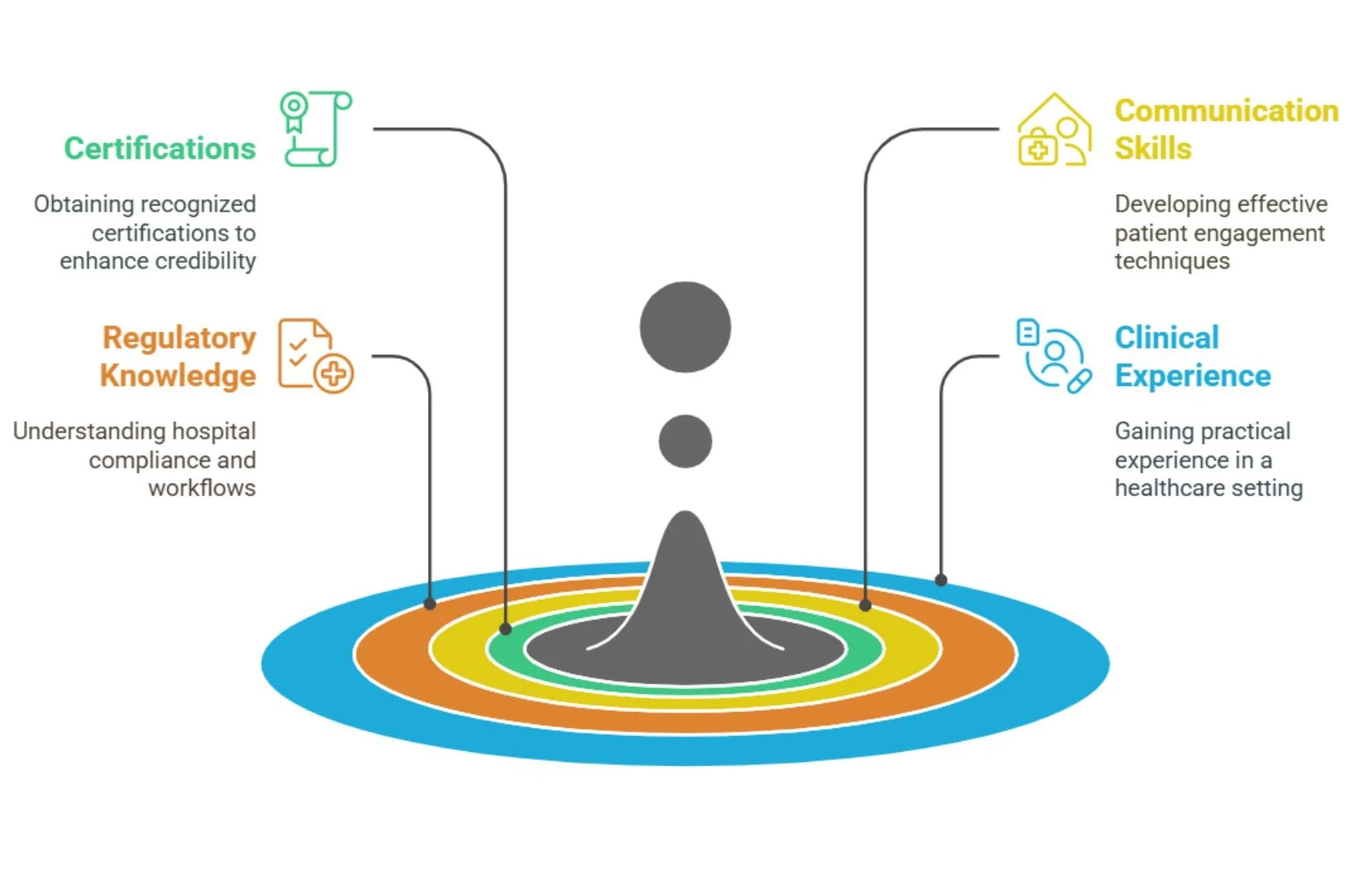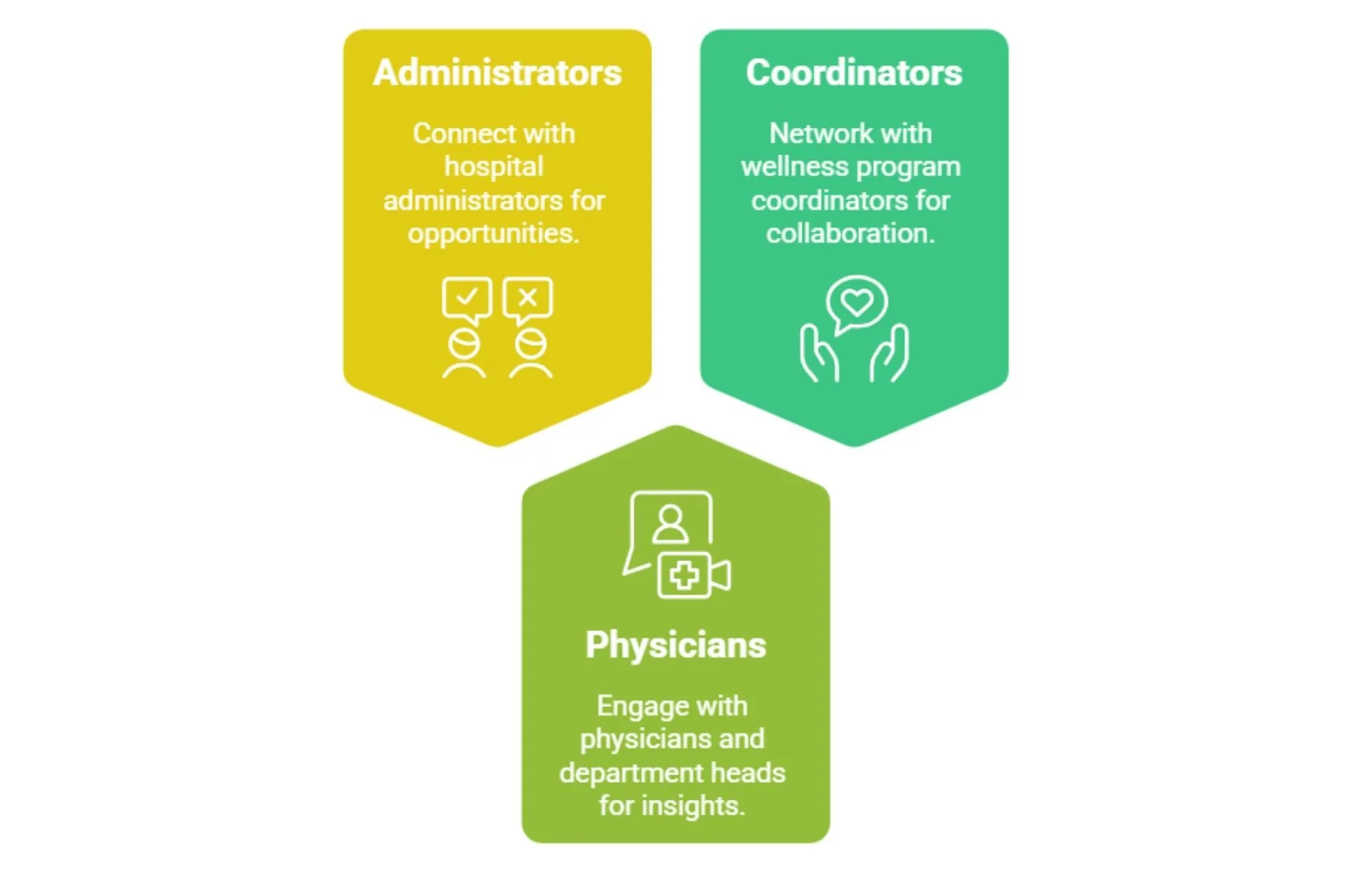How to Offer Health Coaching Services to Hospitals
Hospitals in 2025 are under more pressure than ever to improve patient outcomes, reduce readmission rates, and provide preventive care while balancing financial sustainability. Health coaching services have emerged as a critical solution to these challenges. By offering personalized support, behavior change strategies, and education, health coaches help hospitals improve patient satisfaction, adherence to treatment plans, and long-term wellness.
If you’re a health coach looking to collaborate with hospitals, this guide will provide an expert roadmap on how to position your services effectively, secure contracts, and make a lasting impact in the healthcare system.
The Growing Demand for Health Coaching Services in Hospitals
The healthcare industry is shifting toward preventive care and personalized medicine, making health coaching services a perfect fit. Here’s why hospitals are increasingly integrating health coaches into their care models:
Preventive Care Focus: With rising healthcare costs, hospitals prioritize lifestyle interventions to prevent chronic diseases.
Value-Based Care Models: Hospitals in 2025 earn revenue based on patient health outcomes, making health coaching invaluable.
Digital Health Integration: Health coaching now includes telehealth, AI-driven health tracking, and remote patient monitoring, aligning with modern healthcare trends.
By understanding these trends, you can position yourself as a vital partner for hospitals looking to improve patient care and financial performance.
Key Benefits of Health Coaching Services in Hospitals
1. Reducing Hospital Readmissions
One of the biggest financial burdens hospitals face is high readmission rates. Health coaches provide post-discharge support, ensuring patients follow treatment plans, take medications correctly, and maintain healthy habits. This significantly lowers re-hospitalization risks.
2. Enhancing Patient Outcomes
Health coaches help patients set achievable health goals, monitor progress, and adjust strategies as needed. Patients who receive coaching experience better chronic disease management, fewer complications, and improved quality of life.
3. Improving Patient Adherence to Treatments
Non-adherence to medications and lifestyle recommendations is a major issue in healthcare. Health coaches use motivational interviewing, personalized goal setting, and behavior modification techniques to boost compliance.
4. Increasing Patient Satisfaction & Engagement
Patients feel more supported when they have a dedicated health coach. By fostering trust and motivation, coaching services contribute to higher patient satisfaction scores—a key metric for hospital success.
5. Supporting Physicians & Healthcare Teams
Doctors and nurses are often overwhelmed. Health coaches help by handling patient education, behavior change coaching, and follow-ups, allowing clinical staff to focus on critical care.
6. Cost Savings for Hospitals
By preventing complications and unnecessary hospital visits, health coaching services reduce overall healthcare costs, making them an attractive investment for hospitals.
Skills & Qualifications Needed to Work with Hospitals
Before approaching hospitals, ensure you have the right skills and credentials to position yourself as a trusted professional.
1. Obtain the Right Certifications
Hospitals prefer to work with certified health coaches. Consider obtaining:
NBHWC (National Board Certified Health & Wellness Coach)
CHES (Certified Health Education Specialist)
RN Health Coach Certification (for nurses looking to transition into coaching)
2. Develop Strong Communication & Coaching Skills
Hospitals need health coaches who can engage patients effectively. Enhance your skills in:
Motivational Interviewing
Behavior Change Strategies
Active Listening & Empathy
3. Understand Hospital Regulations & Compliance
Familiarize yourself with HIPAA compliance, electronic health records (EHR) systems, and hospital workflows to seamlessly integrate into hospital teams.
4. Gain Experience in a Clinical Setting
Experience working alongside doctors, nurses, or physical therapists can strengthen your credibility when approaching hospitals.
Step-by-Step Guide to Offering Health Coaching Services to Hospitals
Step 1: Research & Identify Ideal Hospitals
Not all hospitals are open to health coaching services. Target those with:
✔ High readmission rates
✔ Preventive health initiatives
✔ Chronic disease management programs
Use hospital websites, industry reports, and LinkedIn networking to identify decision-makers.
Step 2: Develop a Winning Proposal
Hospitals need clear, results-driven proposals. Your proposal should include:
How your services improve patient outcomes
The impact on hospital revenue & cost savings
Case studies demonstrating success
Step 3: Network with Hospital Decision-Makers
To get your foot in the door, connect with:
Hospital administrators
Physicians & department heads
Wellness program coordinators
Step 4: Offer Pilot Programs
Hospitals may hesitate to commit to new programs. Offer a short-term pilot program to showcase the value of your coaching services.
Step 5: Integrate Health Coaching Services into Hospital Workflows
Ensure smooth integration by collaborating with:
Doctors & nurses for patient referrals
EHR systems for patient tracking
Hospital staff training on your role
Step 6: Measure & Showcase Results
Track key performance indicators (KPIs) like:
Reduction in readmission rates
Improved patient adherence
Higher patient satisfaction scores
Present these metrics in reports to reinforce the long-term value of your services.
6 Lesser-Known Facts About Health Coaching in Hospitals
AI is being integrated into health coaching, offering personalized insights through data analysis.
Health coaches are now being reimbursed by insurance providers, making services more accessible.
Hospitals using health coaches see a 25% drop in emergency room visits due to better preventive care.
Most patients are more likely to adhere to their care plan when working with a coach vs. a doctor alone.
Remote health coaching via telehealth platforms is expected to grow by 40% by 2027.
Large hospitals are beginning to integrate health coaches directly into patient discharge teams.
Final Thoughts
The demand for health coaching services in hospitals is at an all-time high, and the opportunities are growing. By obtaining the right certifications, networking strategically, and presenting measurable results, you can secure long-term partnerships with hospitals and make a real impact on patient health.
Start positioning yourself as an expert in hospital health coaching today, and take advantage of this fast-growing industry trend!
The American Natural Health Coaches Organization (ANHCO) is a leading authority in holistic health coaching, providing comprehensive education on natural wellness, nutrition, and behavior change strategies. The ANHCO Health Coach Certification is designed for professionals seeking to integrate holistic approaches into healthcare settings, equipping them with evidence-based coaching techniques. This certification emphasizes preventive health, lifestyle medicine, and patient-centered coaching, making it highly relevant for those looking to work with hospitals and wellness organizations. With ANHCO’s growing recognition in 2025, certified coaches are increasingly sought after for their ability to bridge the gap between traditional medicine and holistic wellness.
FAQS
-
Most hospitals require health coaches to have certifications such as NBC-HWC (National Board Certified Health & Wellness Coach) or credentials in nursing, nutrition, or a related field. A background in healthcare or wellness is often preferred.
-
Research hospitals that have wellness programs, then network with healthcare professionals, attend medical conferences, and send proposals outlining the benefits of health coaching. Connecting with hospital administrators, HR departments, or wellness coordinators is key.
-
Hospitals may seek coaching for chronic disease management (diabetes, hypertension), lifestyle changes (nutrition, fitness, stress management), smoking cessation, mental health support, and post-discharge recovery plans.
-
Present case studies, research, and data showing how health coaching improves patient outcomes, reduces hospital readmissions, and lowers healthcare costs. Offering pilot programs or free initial workshops can help prove your value.
-
Be aware of HIPAA regulations (for patient privacy), liability insurance requirements, and any state-specific licensing laws that may apply to health coaching within a medical setting.
-
Rates vary based on experience, location, and service model. Hourly rates range from $50-$200, while project-based or retainer models can be negotiated depending on the hospital's needs.
-
Yes! Building relationships with physicians, dietitians, and therapists can lead to patient referrals. Offering co-branded wellness programs or workshops can strengthen partnerships.




